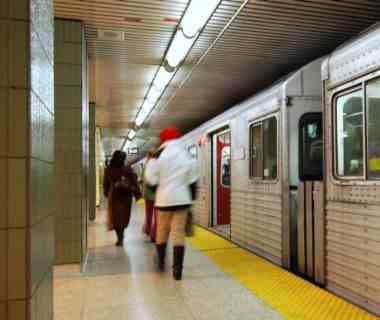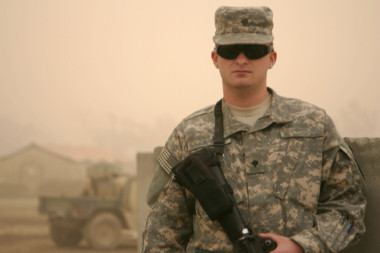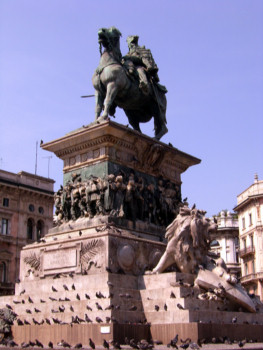Tanaka6000
COMPOUND WORDS
5000 WORDS
PHRASES
Ich arbeite bei einem Fernsehsender.  I work at a television station . Ich arbeite bei einem Fernsehsender 0 (ENG ) (DE ) (0210)           | |||||||||||||||||||||||||||||||||||||||||||||||||||||||||||||||||||||||||||||||||||||||||||||||||||||||||||||||||||||||||||||||||||||||||||||||||||||||||||||||||||||||||||||||||||||||||||||||||||||||||||||||||||||||||||||||||||||||||||||||||||||||||||||||||||||||||||||||||||||||||||||||||||||||||||||||
Seine Präsentation ist sehr klar.  His presentation is very clear . Seine Präsentation ist sehr klar 0 (ENG ) (DE ) (0485)           | |||||||||||||||||||||||||||||||||||||||||||||||||||||||||||||||||||||||||||||||||||||||||||||||||||||||||||||||||||||||||||||||||||||||||||||||||||||||||||||||||||||||||||||||||||||||||||||||||||||||||||||||||||||||||||||||||||||||||||||||||||||||||||||||||||||||||||||||||||||||||||||||||||||||||||||||
Der Zug ist am Bahnhof angekommen.  The train has arrived at the station . Der Zug ist am Bahnhof angekommen 0 (ENG ) (DE ) (0594)           | |||||||||||||||||||||||||||||||||||||||||||||||||||||||||||||||||||||||||||||||||||||||||||||||||||||||||||||||||||||||||||||||||||||||||||||||||||||||||||||||||||||||||||||||||||||||||||||||||||||||||||||||||||||||||||||||||||||||||||||||||||||||||||||||||||||||||||||||||||||||||||||||||||||||||||||||
Ich war rechtzeitig am Bahnhof.  I made it to the station in time . Ich war rechtzeitig am Bahnhof 0 (ENG ) (DE ) (0742)           | |||||||||||||||||||||||||||||||||||||||||||||||||||||||||||||||||||||||||||||||||||||||||||||||||||||||||||||||||||||||||||||||||||||||||||||||||||||||||||||||||||||||||||||||||||||||||||||||||||||||||||||||||||||||||||||||||||||||||||||||||||||||||||||||||||||||||||||||||||||||||||||||||||||||||||||||
Zuschauer drängen sich auf den Tribünen.  Spectators crowded the bleachers . Zuschauer drängen sich auf den Tribünen 0 (ENG ) (DE ) (0903)           | |||||||||||||||||||||||||||||||||||||||||||||||||||||||||||||||||||||||||||||||||||||||||||||||||||||||||||||||||||||||||||||||||||||||||||||||||||||||||||||||||||||||||||||||||||||||||||||||||||||||||||||||||||||||||||||||||||||||||||||||||||||||||||||||||||||||||||||||||||||||||||||||||||||||||||||||
Eine Verfassung ist das Grundgesetz eines Staates.  A constitution is the basic law of a state . Eine Verfassung ist das Grundgesetz eines Staates 0 (ENG ) (DE ) (0911)           | |||||||||||||||||||||||||||||||||||||||||||||||||||||||||||||||||||||||||||||||||||||||||||||||||||||||||||||||||||||||||||||||||||||||||||||||||||||||||||||||||||||||||||||||||||||||||||||||||||||||||||||||||||||||||||||||||||||||||||||||||||||||||||||||||||||||||||||||||||||||||||||||||||||||||||||||
Lincoln war ein großartiger Staatsmann.  Lincoln was a great statesman . Lincoln war ein großartiger Staatsmann 0 (ENG ) (DE ) (1340)           | |||||||||||||||||||||||||||||||||||||||||||||||||||||||||||||||||||||||||||||||||||||||||||||||||||||||||||||||||||||||||||||||||||||||||||||||||||||||||||||||||||||||||||||||||||||||||||||||||||||||||||||||||||||||||||||||||||||||||||||||||||||||||||||||||||||||||||||||||||||||||||||||||||||||||||||||
Das Schloss sieht sehr imposant aus.  The castle looks stately . Das Schloss sieht sehr imposant aus 0 (ENG ) (DE ) (1597)           | |||||||||||||||||||||||||||||||||||||||||||||||||||||||||||||||||||||||||||||||||||||||||||||||||||||||||||||||||||||||||||||||||||||||||||||||||||||||||||||||||||||||||||||||||||||||||||||||||||||||||||||||||||||||||||||||||||||||||||||||||||||||||||||||||||||||||||||||||||||||||||||||||||||||||||||||
Ich mag Kartoffelpüree.  I like mashed potatoes . Ich mag Kartoffelpüree 0 (ENG ) (DE ) (1857)           | |||||||||||||||||||||||||||||||||||||||||||||||||||||||||||||||||||||||||||||||||||||||||||||||||||||||||||||||||||||||||||||||||||||||||||||||||||||||||||||||||||||||||||||||||||||||||||||||||||||||||||||||||||||||||||||||||||||||||||||||||||||||||||||||||||||||||||||||||||||||||||||||||||||||||||||||
Ich benutze die Immobilie, um einen Kredit zu sichern.  I use real estate as a mortgage . Ich benutze die Immobilie , um einen Kredit zu sichern 0 (ENG ) (DE ) (1862)           | |||||||||||||||||||||||||||||||||||||||||||||||||||||||||||||||||||||||||||||||||||||||||||||||||||||||||||||||||||||||||||||||||||||||||||||||||||||||||||||||||||||||||||||||||||||||||||||||||||||||||||||||||||||||||||||||||||||||||||||||||||||||||||||||||||||||||||||||||||||||||||||||||||||||||||||||
Mein Zuhause ist einen Kilometer vom Bahnhof entfernt.  My home is one kilometer away from the station . Mein Zuhause ist einen Kilometer vom Bahnhof entfernt 0 (ENG ) (DE ) (1945)           | |||||||||||||||||||||||||||||||||||||||||||||||||||||||||||||||||||||||||||||||||||||||||||||||||||||||||||||||||||||||||||||||||||||||||||||||||||||||||||||||||||||||||||||||||||||||||||||||||||||||||||||||||||||||||||||||||||||||||||||||||||||||||||||||||||||||||||||||||||||||||||||||||||||||||||||||
Das ist ein Atomkraftwerk.  That is a nuclear power station . Das ist ein Atomkraftwerk 0 (ENG ) (DE ) (2003)           | |||||||||||||||||||||||||||||||||||||||||||||||||||||||||||||||||||||||||||||||||||||||||||||||||||||||||||||||||||||||||||||||||||||||||||||||||||||||||||||||||||||||||||||||||||||||||||||||||||||||||||||||||||||||||||||||||||||||||||||||||||||||||||||||||||||||||||||||||||||||||||||||||||||||||||||||
Die Freiheitsstatue steht im Hafen.  The Statue of Liberty stands tall in the harbor . Die Freiheitsstatue steht im Hafen 0 (ENG ) (DE ) (2004)           | |||||||||||||||||||||||||||||||||||||||||||||||||||||||||||||||||||||||||||||||||||||||||||||||||||||||||||||||||||||||||||||||||||||||||||||||||||||||||||||||||||||||||||||||||||||||||||||||||||||||||||||||||||||||||||||||||||||||||||||||||||||||||||||||||||||||||||||||||||||||||||||||||||||||||||||||
Alle ahmen die Bewegungen des Lehrers nach.  Everyone imitates the movements of the teacher . Alle ahmen die Bewegungen des Lehrers nach 0 (ENG ) (DE ) (2131)           | |||||||||||||||||||||||||||||||||||||||||||||||||||||||||||||||||||||||||||||||||||||||||||||||||||||||||||||||||||||||||||||||||||||||||||||||||||||||||||||||||||||||||||||||||||||||||||||||||||||||||||||||||||||||||||||||||||||||||||||||||||||||||||||||||||||||||||||||||||||||||||||||||||||||||||||||
Dies ist eine Nachahmung.  This is an imitation . Dies ist eine Nachahmung 0 (ENG ) (DE ) (2132)           | |||||||||||||||||||||||||||||||||||||||||||||||||||||||||||||||||||||||||||||||||||||||||||||||||||||||||||||||||||||||||||||||||||||||||||||||||||||||||||||||||||||||||||||||||||||||||||||||||||||||||||||||||||||||||||||||||||||||||||||||||||||||||||||||||||||||||||||||||||||||||||||||||||||||||||||||
Die Soldaten sind an der Grenze stationiert.  The soldiers are stationed at the frontier . Die Soldaten sind an der Grenze stationiert 0 (ENG ) (DE ) (2222)           | |||||||||||||||||||||||||||||||||||||||||||||||||||||||||||||||||||||||||||||||||||||||||||||||||||||||||||||||||||||||||||||||||||||||||||||||||||||||||||||||||||||||||||||||||||||||||||||||||||||||||||||||||||||||||||||||||||||||||||||||||||||||||||||||||||||||||||||||||||||||||||||||||||||||||||||||
Das ist mein Arbeitsplatz.  This is my job station . Das ist mein Arbeitsplatz 0 (ENG ) (DE ) (2435)           | |||||||||||||||||||||||||||||||||||||||||||||||||||||||||||||||||||||||||||||||||||||||||||||||||||||||||||||||||||||||||||||||||||||||||||||||||||||||||||||||||||||||||||||||||||||||||||||||||||||||||||||||||||||||||||||||||||||||||||||||||||||||||||||||||||||||||||||||||||||||||||||||||||||||||||||||
Er macht Anmerkungen im Buch.  He is annotating the book . Er macht Anmerkungen im Buch 0 (ENG ) (DE ) (2505)           | |||||||||||||||||||||||||||||||||||||||||||||||||||||||||||||||||||||||||||||||||||||||||||||||||||||||||||||||||||||||||||||||||||||||||||||||||||||||||||||||||||||||||||||||||||||||||||||||||||||||||||||||||||||||||||||||||||||||||||||||||||||||||||||||||||||||||||||||||||||||||||||||||||||||||||||||
Sie ist in einem sehr schwachen Gesundheitszustand.  She is in a very weak state of health . Sie ist in einem sehr schwachen Gesundheitszustand 0 (ENG ) (DE ) (2567)           | |||||||||||||||||||||||||||||||||||||||||||||||||||||||||||||||||||||||||||||||||||||||||||||||||||||||||||||||||||||||||||||||||||||||||||||||||||||||||||||||||||||||||||||||||||||||||||||||||||||||||||||||||||||||||||||||||||||||||||||||||||||||||||||||||||||||||||||||||||||||||||||||||||||||||||||||
Auf dem Platz steht eine Statue des Marschalls (Oberbefehlshaber).  There is a statue of the Marshal (commander-in-chief) in the square . Auf dem Platz steht eine Statue des Marschalls (Oberbefehlshaber) 0 (ENG ) (DE ) (2778)           | |||||||||||||||||||||||||||||||||||||||||||||||||||||||||||||||||||||||||||||||||||||||||||||||||||||||||||||||||||||||||||||||||||||||||||||||||||||||||||||||||||||||||||||||||||||||||||||||||||||||||||||||||||||||||||||||||||||||||||||||||||||||||||||||||||||||||||||||||||||||||||||||||||||||||||||||
Sie zögern, welche Schuhe sie kaufen sollen.  They are hesitating about which shoes to buy . Sie zögern , welche Schuhe sie kaufen sollen 0 (ENG ) (DE ) (3040)           | |||||||||||||||||||||||||||||||||||||||||||||||||||||||||||||||||||||||||||||||||||||||||||||||||||||||||||||||||||||||||||||||||||||||||||||||||||||||||||||||||||||||||||||||||||||||||||||||||||||||||||||||||||||||||||||||||||||||||||||||||||||||||||||||||||||||||||||||||||||||||||||||||||||||||||||||
Ich habe eine Einladung erhalten.  I have received an invitation . Ich habe eine Einladung erhalten 0 (ENG ) (DE ) (3158)           | |||||||||||||||||||||||||||||||||||||||||||||||||||||||||||||||||||||||||||||||||||||||||||||||||||||||||||||||||||||||||||||||||||||||||||||||||||||||||||||||||||||||||||||||||||||||||||||||||||||||||||||||||||||||||||||||||||||||||||||||||||||||||||||||||||||||||||||||||||||||||||||||||||||||||||||||
Die Menge stürmte in den Bahnhof.  The crowd surged into the train station . Die Menge stürmte in den Bahnhof 0 (ENG ) (DE ) (3175)           | |||||||||||||||||||||||||||||||||||||||||||||||||||||||||||||||||||||||||||||||||||||||||||||||||||||||||||||||||||||||||||||||||||||||||||||||||||||||||||||||||||||||||||||||||||||||||||||||||||||||||||||||||||||||||||||||||||||||||||||||||||||||||||||||||||||||||||||||||||||||||||||||||||||||||||||||
Die Freiheitsstatue ist ein Symbol von New York.  The Statue of Liberty is a symbol of New York . Die Freiheitsstatue ist ein Symbol von New York 0 (ENG ) (DE ) (3188)           | |||||||||||||||||||||||||||||||||||||||||||||||||||||||||||||||||||||||||||||||||||||||||||||||||||||||||||||||||||||||||||||||||||||||||||||||||||||||||||||||||||||||||||||||||||||||||||||||||||||||||||||||||||||||||||||||||||||||||||||||||||||||||||||||||||||||||||||||||||||||||||||||||||||||||||||||
Er liefert dem Generaldirektor einen Bericht über Staatsangelegenheiten.  He is delivering the chief executive is report on affairs of state . Er liefert dem Generaldirektor einen Bericht über Staatsangelegenheiten 0 (ENG ) (DE ) (3190)           | |||||||||||||||||||||||||||||||||||||||||||||||||||||||||||||||||||||||||||||||||||||||||||||||||||||||||||||||||||||||||||||||||||||||||||||||||||||||||||||||||||||||||||||||||||||||||||||||||||||||||||||||||||||||||||||||||||||||||||||||||||||||||||||||||||||||||||||||||||||||||||||||||||||||||||||||
Ich esse jeden Tag Kartoffeln.  I eat potatoes every day . Ich esse jeden Tag Kartoffeln 0 (ENG ) (DE ) (3250)           | |||||||||||||||||||||||||||||||||||||||||||||||||||||||||||||||||||||||||||||||||||||||||||||||||||||||||||||||||||||||||||||||||||||||||||||||||||||||||||||||||||||||||||||||||||||||||||||||||||||||||||||||||||||||||||||||||||||||||||||||||||||||||||||||||||||||||||||||||||||||||||||||||||||||||||||||
Die Süßkartoffeln sind frisch.  The sweet potatoes are fresh . Die Süßkartoffeln sind frisch 0 (ENG ) (DE ) (3251)           | |||||||||||||||||||||||||||||||||||||||||||||||||||||||||||||||||||||||||||||||||||||||||||||||||||||||||||||||||||||||||||||||||||||||||||||||||||||||||||||||||||||||||||||||||||||||||||||||||||||||||||||||||||||||||||||||||||||||||||||||||||||||||||||||||||||||||||||||||||||||||||||||||||||||||||||||
Lenins Konterfei wurde zu einer Statue gemacht, damit die Menschen ihm Tribut zollen können.  Lenin' s likeness has been made into a statue to enable people to pay tribute to him . Lenins Konterfei wurde zu einer Statue gemacht , damit die Menschen ihm Tribut zollen können 0 (ENG ) (DE ) (3437)           | |||||||||||||||||||||||||||||||||||||||||||||||||||||||||||||||||||||||||||||||||||||||||||||||||||||||||||||||||||||||||||||||||||||||||||||||||||||||||||||||||||||||||||||||||||||||||||||||||||||||||||||||||||||||||||||||||||||||||||||||||||||||||||||||||||||||||||||||||||||||||||||||||||||||||||||||
John is walking in the direction of the station . | John geht in Richtung Bahnhof. | The train doesn't stop at that station . | Der Zug hält nicht an diesem Bahnhof. | His accident incapacitated him for work . | sein Unfall machte ihn arbeitsunfähig. | We hold out no expectation of success . | Wir versprechen uns keinen Erfolg. | Men are subject to temptation . | Männer sind der Versuchung ausgesetzt. | She could not state her own opinion . | Sie konnte ihre eigene Meinung nicht äußern. | Your work didn't come up to our expectations . | Ihre Arbeit hat unsere Erwartungen nicht erfüllt. | There was a fire near the train station last night . | Gestern Abend gab es in der Nähe des Bahnhofs einen Brand. | My house is located at a distance from the station . | Mein Haus liegt in einiger Entfernung vom Bahnhof. | Which station are you going to ? | Zu welchem Bahnhof gehst du? | They advised me to go to the police station . | Sie rieten mir, zur Polizeistation zu gehen. | There is a taxi stand near the station . | In der Nähe des Bahnhofs befindet sich ein Taxistand. | Ask him the way to station . | Fragen Sie ihn nach dem Weg zum Bahnhof. | He must have reached the station . | Er muss den Bahnhof erreicht haben. | I managed to get to the station on time . | Ich habe es geschafft, pünktlich am Bahnhof zu sein. | I want to be a statesman . | Ich möchte ein Staatsmann sein. | The bus landed us at the station . | Der Bus setzte uns am Bahnhof ab. | I met her at tokyo station . | Ich traf sie am Bahnhof Tokio. | Do not forget to meet me at the station . | Vergessen Sie nicht, mich am Bahnhof zu treffen. | John has already come to the station . | John ist bereits am Bahnhof angekommen. | He was made to wait at the station for two hours . | Er musste zwei Stunden am Bahnhof warten. | I saw my friend to the station . | Ich habe meinen Freund zum Bahnhof begleitet. | I made my brother go to the station . | Ich ließ meinen Bruder zum Bahnhof gehen. | She asked me to meet her at the station . | Sie bat mich, sie am Bahnhof zu treffen. | As a matter of fact , he's going to the states . | Tatsächlich geht er in die Staaten. | She is very good at imitating her teacher . | Sie ist sehr gut darin, ihren Lehrer nachzuahmen. | I have just been to the station to see my uncle off . | Ich war gerade am Bahnhof, um meinen Onkel zu verabschieden. | I'm at tokyo station now . | Ich bin jetzt am Bahnhof Tokio. | The station is pretty far . | Der Bahnhof ist ziemlich weit entfernt. | The train arrived at the station on time . | Der Zug kam pünktlich am Bahnhof an. | Where is the railroad station ? | Wo ist der Bahnhof? | He never gave way to temptation . | Er gab der Versuchung nie nach. | He took a taxi to the station . | Er nahm ein Taxi zum Bahnhof. | The train was about to leave the station . | Der Zug wollte gerade den Bahnhof verlassen. | He runs to the station every morning . | Er rennt jeden Morgen zum Bahnhof. | Do you know where the police station is ? | Wissen Sie, wo die Polizeistation ist? | His statement really cut me . | Seine Aussage hat mich wirklich getroffen. | Can you give me a ride to the station ? | Können Sie mich zum Bahnhof fahren? | The station is nearby . | Der Bahnhof liegt in der Nähe. | I could not come up to his expectations . | Ich konnte seine Erwartungen nicht erfüllen. | I am to meet him at five at the station . | Ich soll ihn um fünf am Bahnhof treffen. | I live about an hour from the station . | Ich wohne etwa eine Stunde vom Bahnhof entfernt. | Why did jane go to the station ? | Warum ist Jane zum Bahnhof gegangen? | What's your business in the states ? | Was ist Ihr Geschäft in den Staaten? | I met him at the station . | Ich traf ihn am Bahnhof. | The answer irritated me . | Die Antwort hat mich irritiert. | What transportation will we take ? | Welchen Transport nehmen wir? | I'm getting off at the next station . | Ich steige an der nächsten Station aus. | On my arrival at the station , I will call you . | Sobald ich am Bahnhof ankomme, rufe ich Sie an. | Here we are at tokyo station . | Hier sind wir am Bahnhof Tokio. | I could not help but state my opinion . | Ich konnte nicht anders, als meine Meinung zu äußern. | I reached the station at six . | Um sechs erreichte ich den Bahnhof. | I took a taxi from the station to the hotel . | Ich nahm ein Taxi vom Bahnhof zum Hotel. | I have just been to the station to see my uncle off . | Ich war gerade am Bahnhof, um meinen Onkel zu verabschieden. | How long does it take to the train station by taxi ? | Wie lange dauert es mit dem Taxi zum Bahnhof? | I will pick him up at the station . | Ich werde ihn am Bahnhof abholen. | He will live up to his father's expectations . | Er wird den Erwartungen seines Vaters gerecht. | I saw the train come into the station . | Ich sah, wie der Zug in den Bahnhof einfuhr. | Don't hesitate to ask if you want anything . | Zögern Sie nicht zu fragen, ob Sie etwas möchten. | How far is the next gas station ? | Wie weit ist die nächste Tankstelle entfernt? | He has a good reputation no matter where he goes . | Er hat einen guten Ruf, egal wohin er geht. | He is the chief of a police station . | Er ist Chef einer Polizeistation. | My house is near the station . | Mein Haus liegt in der Nähe des Bahnhofs. | He was made to wait at the station for two hours . | Er musste zwei Stunden am Bahnhof warten. | We ran into each other at the station . | Wir trafen uns am Bahnhof. | How long does it take from here to tokyo station by car ? | Wie lange dauert es mit dem Auto von hier bis zum Bahnhof Tokio? | It is important to know your own limitations . | Es ist wichtig, die eigenen Grenzen zu kennen. | Because he lived in the united states for five years . | Weil er fünf Jahre in den Vereinigten Staaten gelebt hat. | I hear that you are going to the united states . | Ich habe gehört, dass Sie in die Vereinigten Staaten reisen. | We'll change trains at the next station . | Wir werden am nächsten Bahnhof umsteigen. | There is a bank in front of the station . | Vor dem Bahnhof befindet sich eine Bank. | We just arrived at the station . | Wir sind gerade am Bahnhof angekommen. | The bus runs between the school and the station . | Der Bus verkehrt zwischen der Schule und dem Bahnhof. | He went as far as the station . | Er ging bis zum Bahnhof. | His brother went to the station to see him off . | Sein Bruder ging zum Bahnhof, um ihn zu verabschieden. | Please have my baggage brought to the station . | Bitte lassen Sie mein Gepäck zum Bahnhof bringen. | The new house didn't live up to expectations . | Das neue Haus entsprach nicht den Erwartungen. | Please don't hesitate to ask me any questions . | Bitte zögern Sie nicht, mir Fragen zu stellen. | She endeavored to live up to their expectations . | Sie bemühte sich, ihren Erwartungen gerecht zu werden. | The result fell short of our expectations . | Das Ergebnis blieb hinter unseren Erwartungen zurück. | He showed me the way to the station . | Er zeigte mir den Weg zum Bahnhof. | It took about five minutes to get to my uncle's house from the station . | Die Fahrt vom Bahnhof zum Haus meines Onkels dauerte etwa fünf Minuten. | The result fell short of our expectations . | Das Ergebnis blieb hinter unseren Erwartungen zurück. | Get off at himeji station . | Steigen Sie am Bahnhof Himeji aus. | Will this road take me to the station ? | Führt mich diese Straße zum Bahnhof? | Could you tell me how to get to the nearest station ? | Können Sie mir sagen, wie ich zum nächsten Bahnhof komme? | Did you see him at the station this morning ? | Haben Sie ihn heute Morgen am Bahnhof gesehen? | This city has a big tv station . | Diese Stadt hat einen großen Fernsehsender. | The train leaves tokyo station at 7 . | Der Zug verlässt den Bahnhof Tokio um 7 Uhr. | I have been to the station to see him off . | Ich war auf dem Bahnhof, um ihn zu verabschieden. | I have a few friends in the united states . | Ich habe ein paar Freunde in den Vereinigten Staaten. | Is this the right way to the station ? | Ist das der richtige Weg zum Bahnhof? | I have often met mr sasaki at the station . | Ich habe Herrn Sasaki oft am Bahnhof getroffen. | This road leads to the station . | Diese Straße führt zum Bahnhof. | Please let me pick up your sister at the station . | Bitte lass mich deine Schwester vom Bahnhof abholen. | I joined him at the station . | Ich gesellte mich zu ihm am Bahnhof. | We got to the station in time to catch the bus . | Wir kamen rechtzeitig am Bahnhof an, um den Bus zu erreichen. | He did not live up to expectations . | Er hat die Erwartungen nicht erfüllt. | Please wait for me at the station . | Bitte warten Sie am Bahnhof auf mich. | On arriving at the station , she rang up her mother . | Als sie am Bahnhof ankam, rief sie ihre Mutter an. | Such a state of things cannot be put up with . | Ein solcher Zustand kann nicht ertragen werden. | Please let me know the status . | Bitte teilen Sie mir den Status mit. | I want to live not far from the station . | Ich möchte nicht weit vom Bahnhof entfernt wohnen. | Don't hesitate to ask questions . | Zögern Sie nicht, Fragen zu stellen. | Bill accepted my statement as true . | Bill akzeptierte meine Aussage als wahr. | A seat became vacant at that station . | An diesem Bahnhof wurde ein Sitzplatz frei. | The result fell short of his expectation . | Das Ergebnis blieb hinter seinen Erwartungen zurück. | I will meet you at the station at 10 p.M. | Ich treffe Sie um 22 Uhr am Bahnhof. | I bumped into him at the station . | Ich traf ihn am Bahnhof. | How far is it to the station ? | Wie weit ist es bis zum Bahnhof? | Here we were at tokyo station . | Hier waren wir am Bahnhof Tokio. | Don't hesitate to ask questions . | Zögern Sie nicht, Fragen zu stellen. | He is as great a statesman as any . | Er ist ein ebenso großer Staatsmann wie jeder andere. | How can I get to the station ? | Wie komme ich zum Bahnhof? | This bus will take you to the station . | Dieser Bus bringt Sie zum Bahnhof. | Is this the street leading to the station ? | Ist das die Straße, die zum Bahnhof führt? | Change trains at tokyo station . | Am Bahnhof Tokio umsteigen. | I have been to the station to see him off . | Ich war auf dem Bahnhof, um ihn zu verabschieden. | John ran to the station so as to catch the last train . | John rannte zum Bahnhof, um den letzten Zug zu erwischen. | When he got to the station , the train had already left . | Als er am Bahnhof ankam, war der Zug bereits abgefahren. | I hurried to the station only to miss the train . | Ich eilte zum Bahnhof, verpasste jedoch den Zug. | Are you on your way to the station ? | Sind Sie auf dem Weg zum Bahnhof? | Where is the police station ? | Wo ist die Polizei Station ? | He came across her at the station . | Er traf sie am Bahnhof. | I can beat you to the station . | Ich komme schneller als du zum Bahnhof. | I have been to the station to see her off . | Ich war auf dem Bahnhof, um sie zu verabschieden. | He arrived at the station out of breath . | Er kam außer Atem am Bahnhof an. | The man decided to wait at the station until his wife came . | Der Mann beschloss, am Bahnhof zu warten, bis seine Frau kam. | On arriving at the station , I called a friend of mine . | Als ich am Bahnhof ankam, rief ich einen Freund an. | My house is near the station . | Mein Haus liegt in der Nähe des Bahnhofs. | We are getting off at the next station . | Wir steigen an der nächsten Station aus. | Will you tell me the way to the station ? | Sagst du mir den Weg zum Bahnhof? | The station is near at hand . | Der Bahnhof ist in unmittelbarer Nähe. | He got off at the next station . | Er stieg an der nächsten Station aus. | I want some potatoes . | Ich möchte ein paar Kartoffeln. | I will meet you at the station tomorrow . | Wir treffen uns morgen am Bahnhof. | He made an effort to get to the station early . | Er bemühte sich, früh am Bahnhof zu sein. | How far is it from here to the station ? | Wie weit ist es von hier bis zum Bahnhof? | Every morning I set my watch by the station clock . | Jeden Morgen stelle ich meine Uhr nach der Bahnhofsuhr. | The station is two miles away . | Der Bahnhof ist zwei Meilen entfernt. | The station is a little way off . | Der Bahnhof liegt etwas abseits. | As I reached the station , I got off the bus . | Als ich am Bahnhof ankam, stieg ich aus dem Bus. | As soon as she got on the train , it pulled out of the station . | Sobald sie in den Zug einstieg, fuhr dieser aus dem Bahnhof. | He led us to the station . | Er führte uns zum Bahnhof. | Will you give us a statement ? | Können Sie uns eine Stellungnahme abgeben? | I saw him at the station a few days ago . | Ich habe ihn vor ein paar Tagen am Bahnhof gesehen. | It fell short of my expectation . | Es blieb hinter meinen Erwartungen zurück. | I will wait for you in front of the radio station . | Ich werde vor dem Radiosender auf Sie warten. | Where can I catch the bus to the tokyo station ? | Wo kann ich den Bus zum Bahnhof Tokio nehmen? | He was irritated by the sound . | Er war von dem Geräusch irritiert. | We arrived at the station at five . | Wir kamen um fünf am Bahnhof an. | I met her in a coffee shop near the station . | Ich traf sie in einem Café in der Nähe des Bahnhofs. |